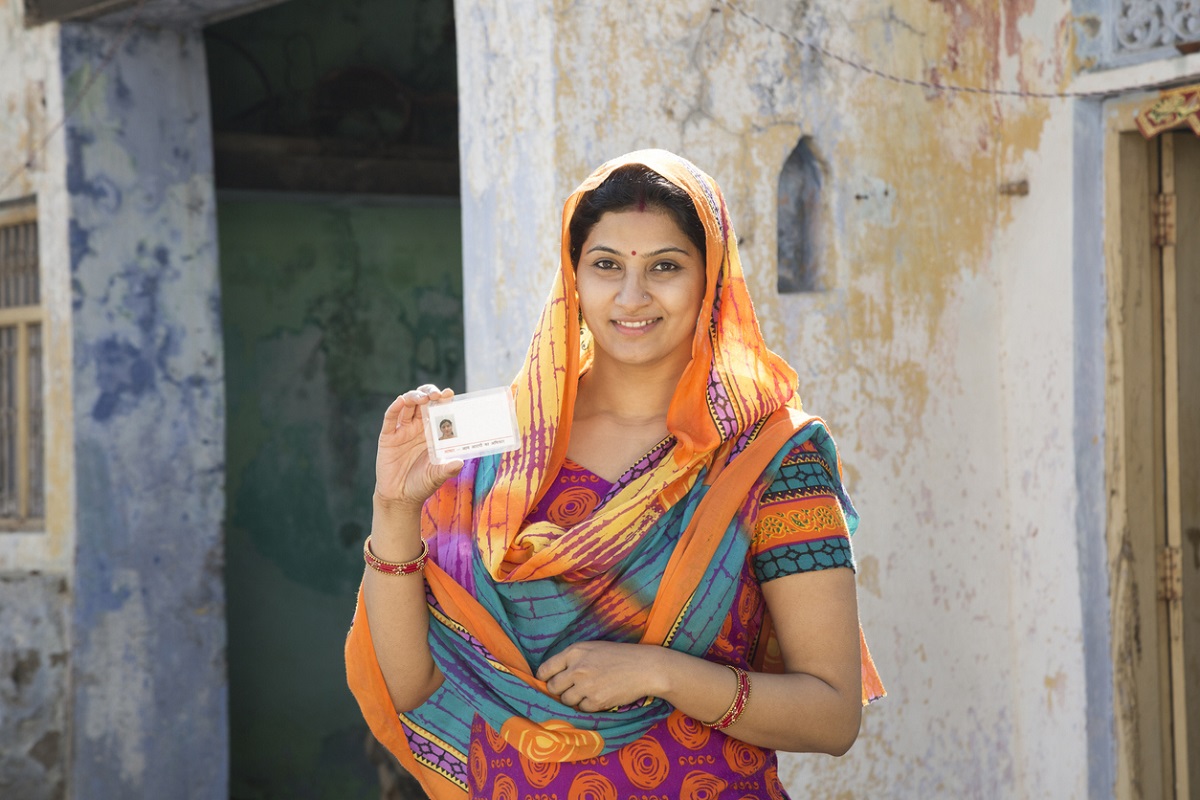Rahul Gandhi hits out at PM, Adani in Rae Bareli
Congress leader Rahul Gandhi on Friday hit out against Prime Minister Narendra Modi and Industrialist Gautam Adani on the second day of his Rae Bareli visit.
Even as writer and columnist Aakar Patel in an article recently reasoned why we should look forward to a hung Parliament after this election, I take the liberty of looking forward to a National government.

The worry is not “who rules,” but whether who rules matters in terms of political process and government policy. (Representational Image: iStock)
We are in the midst of yet another general election and with the declaration of results on 23 May 2019, members of the 17th Lok Sabha will be chosen. Thus, in a hectic election season, election news, in-depth coverage, analysis and opinion scattered across the media ecosystem are but glaringly obvious. However, as political rhetoric and frenzied election campaigns garnished with calamitous language reach a cacophonic climax, a few questions remain unanswered.
Which political party demonstrated commitment to end criminalisation of politics? Which political party is sincere about ending dark money in political funding? Which political party remained steadfast in its resolve to eliminate poverty, hunger and illiteracy? The answer is ‘none’, though the electoral manifestos have become ubiquitous in promising all of these.
Advertisement
Under the circumstances, questioning the country’s political process and government efficacy is what truly makes one patriotic – not the other way around. The idea however is not to get drawn into the whirlpool of fanatical patriotism.
Advertisement
Let’s remember the country’s first president Dr. Rajendra Prasad’s address to the Constituent Assembly in November 1949, when he had said, “If the people who are elected are capable and men of character and integrity, they would be able to make the best even of a defective Constitution. If they are lacking in these, the Constitution cannot help the country… India needs today nothing more than a set of honest men who will have the interest of the country before them… We can only hope that the country will throw up such men in abundance.”
But alas, men of that ilk have been few and far between.
No matter who wins the 2019 election battle, issues like poor politics, corruption, growing income disparity and communal churning will be extremely difficult to halt, much less reverse. No wall will be high enough to shield India from these events. Hence, whether it’s Modi or Rahul, Mayawati or Mamata, Pawar or Akhilesh, regardless of how the 2019 election unfolds, the story is unlikely to have a happy ending. The choice therefore before 900 million voters in this general election is acutely limited as political parties continue to choose the candidates based on winnability and not pick candidates that best represent the interests of voters.
Incidentally, we have had enough of poor politics fixated on short-term gains, not addressing long-term challenges – from unemployment to agrarian crisis (Sir Malcolm Darling’s words continue to haunt us – the British researcher, wrote in 1925 that the peasant in India is born in debt, lives in debt, dies in debt and bequeaths debt) to the proposed Nyuntam Aay Yojana, or NYAY to yet another promise of a “new India”. The resulting crisis seems stark, but not insurmountable though. With a set of sincere leaders at the helm of affairs of the nation we can expect deeper changes in country’s socio-political narrative to ensure democratic renewal and substantial policy reform.
And, to achieve that, the country needs to look beyond current frontline political leadership and look for other new-generation dedicated leaders, capable of offering sincere and spirited leadership. The country is in dire need of leaders who offer constructive voices and promote positive change in our political discourse. The country is in need of strong leaders are not vulnerable to the fatal vices of corruption, rent-seeking, inefficiency, and self-serving or capricious leadership.
Even as writer and columnist Aakar Patel in an article recently reasoned why we should look forward to a hung Parliament after this election, I take the liberty of looking forward to a National government. Because, in a deeper sense, it’s no longer about country’s politicians or its politics alone; it’s about 130 crore people.
It’s time to draw inspiration from David Gergen’s quote. The advisor to four U.S. presidents said “At a time when national politics is so broken, we are in desperate need of a new generation of leaders who cut their teeth on public service. Recruiting these leaders and giving them the resources to run for public office may be our best hope of breaking out of today’s mess.”
It’s indeed time for new political thinking, it’s time for new political leadership, it’s time for retailoring our notion and above all it’s time for a new form of government with eminent people from various fields, not necessarily politics.
The tasks before such a government include the overhauling of the public education and health systems, 100 per cent literacy, strengthening the economy, national service for youth, judicial reform, electoral reforms, critical assessment of entire spectrum of reservation and quota policies as also ending wellentrenched VVIP culture.
The worry is not “who rules,” but whether who rules matters in terms of political process and government policy. The generational shift in political landscape will eventually see usual factors like caste, region, religion etc. lose grip on Indian politics.
(The writer is a former deputy general manager, India International Centre a former general manager, International Centre, Goa)
Advertisement